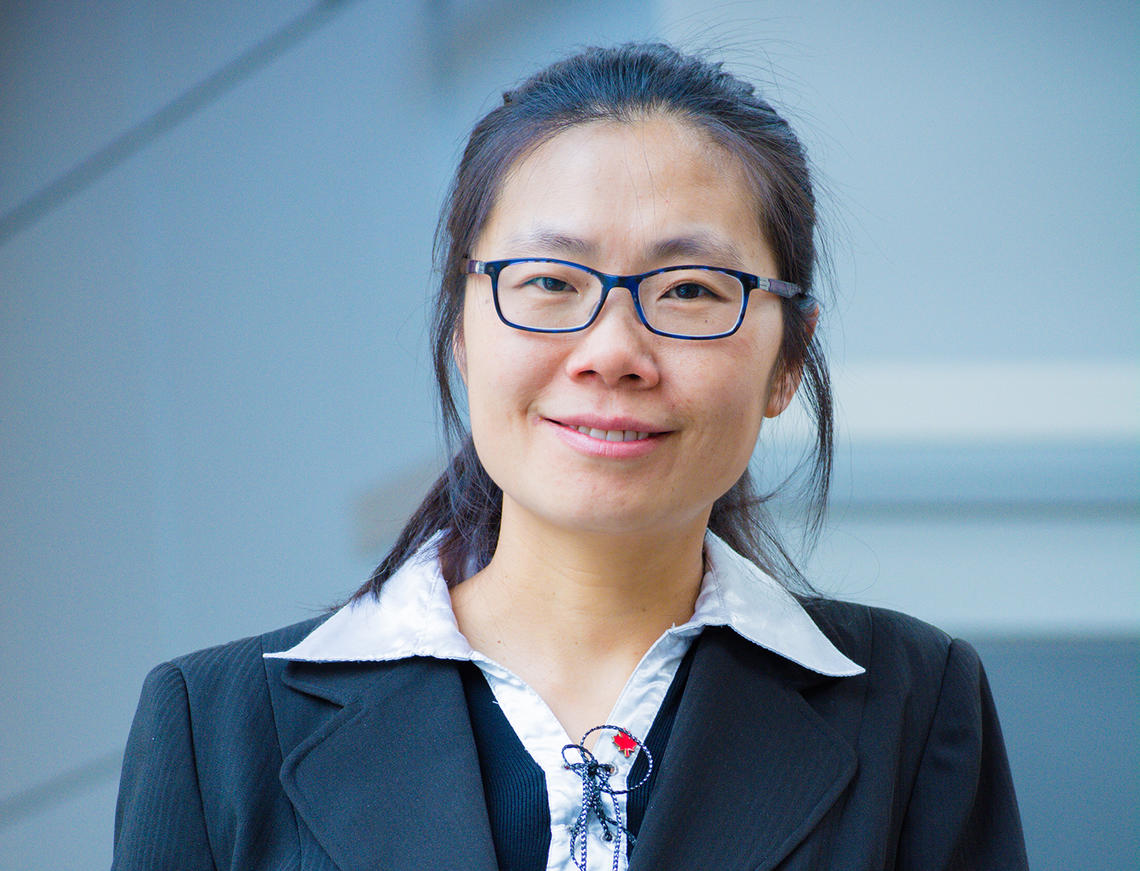April 6, 2020
UCalgary research team develops hand-held device for speedy COVID-19 self-testing

A coronavirus test from the comfort of your living room, with results sent wirelessly from a hand-held biosensor to health officials, minutes after a sample is collected.
That’s the latest COVID-19 research project from University of Calgary researchers and biomedical engineers, as they look to reduce in-person contact for people suspected of being infected with SARS-CoV-2s, while increasing the efficiency and speed of testing for the virus at the root of the global pandemic.
“It’s a matter of using the device to extract and detect target RNA in the virus, and then those results are sent from the device to health officials,” explains Dr. Amir Sanati-Nezhad, PhD, assistant professor of mechanical and manufacturing engineering at the Schulich School of Engineering.

Amir Sanati-Nezhad
Schulich School of Engineering
Part of select scientist group fighting COVID-19
Sanati-Nezhad is a Canada Research Chair in BioMEMS, and a member of the Centre for Bioengineering Research and Education and of the Hotchkiss Brain Institute at the Cumming School of Medicine. His co-lead on the project is Dr. Dongyan Niu, PhD, an assistant professor of infectious disease in the Department of Ecosystem and Public Health in UCalgary’s Faculty of Veterinary Medicine.
Together, they are among a select group of Canadian scientists chosen for federal funding of coronavirus research.
The Canadian Institutes of Health Research (CIHR) COVID-19 funding, worth nearly $800,000, will aid in the development of microfluidic electrochemical nano-biosensors, in a bid to “develop a novel diagnostic tool for rapid detection of early-stage COVID-19.”
Target: virus RNA
The target of the test is RNA that is unique to COVID-19, making the job of the biosensor very straightforward — is the RNA present or not?
“Combining the RNA tests with home-based point-of-care serological assays, we will differentiate between healthy people, those who are symptomatic with COVID19 and need to remain isolated, and those who were infected but have fully recovered and are able to leave isolation and get back to work,” explains Sanati-Nezhad.
"We will evaluate the ability of the biosensor to detect the COVID-19 coronavirus by first trying it with an avian coronavirus," says Niu.

Dongyan Niu
UCVM
Mass testing a key goal of global research
Mass testing of a population through a fast and simple process is a key goal of coronavirus researchers around the world, as it would reduce guesswork and ensure infected patients remain isolated.
While Sanati-Nezhad says a biosensor test is still months away from full production, once ready it will remove the guesswork over who is currently infected, and who has been previously.
RNA can determine if the virus is present, while a serologic test searches blood serum for signs of an immune response to the infection — indicating that a person has already had the virus and therefore isn’t in immediate danger of catching it again.
Engineering swabs for front lines
Obtaining the samples from patients is another project Sanati-Nezhad is leading, through the design of swabs, including a self-collection nasal swab through which patients can do the job themselves.
“Due to the expected shortage of supplies for detection and management of COVID-19, we are exploring options to provide supplies needed for the next few months via local manufactures and university resources,” says Sanati-Nezhad.
“The most urgent items are flocked swabs with flexible plastic shafts. We are working on self-collection nasal swabs to ask people to take their own samples from their home.”
About Biomedical Engineering research strategy
The University of Calgary’s multidisciplinary Engineering Solutions for Health: Biomedical Engineering research strategy drives innovations that are saving lives and revolutionizing health care for Canadians. With collaborative teams focused on human mobility, health monitoring, advanced biomedical imaging, precision biodiagnostics, regenerative medicine and novel medical technologies, our researchers are transforming quality of life and continuously improving the health system.
UCalgary resources on COVID-19
For the most up-to-date information about the University of Calgary's response to the spread of COVID-19, visit the UCalgary COVID-19 Response website.




